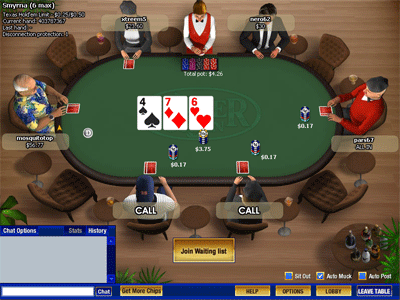While the American online poker community is still reeling from the federal government’s recent crackdown on online gambling websites, it’s worth considering the significance of the date of the seizure and indictment: April 15.
The indictment was handed down by a grand jury and sealed on March 10, 2011, but the Department of Justice (DOJ) waited more than a month before taking action against the online poker companies and the banks involved. While the concurrence with Tax Day was likely a coincidence, it nevertheless reveals the government’s true priorities at the heart of its prosecution of online gambling: money and control.
Keeping foreign operators out of the U.S. market will enable the government to keep more American money in the U.S. subject to tax, as well as prosecute any remaining operators based within the United States.
In December, news broke that the District of Columbia was considering legalizing online gambling. The law was enacted on April 13, 2011, two days prior to the unsealing of the indictment.
D.C’s legalization of online gaming came on the heels of several deals struck between land-based American casino operators and established foreign online poker rooms to work together should online gaming become legal in the United States. For example, U.S. casino operator Wynn and Isle of Man-based PokerStars (now one of the companies under indictment) announced a partnership from which Wynn has since pulled out.
Ironically, the indictment hasn’t hurt online gambling sites, which saw their share prices rise.
But Black Friday’s real winners seem to be brick-and-mortar American casinos and card rooms. While official numbers won’t be available until a significant amount of time has passed, floor managers at card rooms around the country are reporting significant increases in attendance. According to Cardplayer.com, the increases are anywhere between 20 and 50 percent. As for Wynn, its shares hit a 52-week high despite the government’s recent action.
Authorities–eyeing tax revenue from the potentially massive profits from the millions of online gambling Americans–likely saw April 15 as their last opportunity to shut out established foreign operators for good. This shutdown also comes just as most American players have reported their income earned online, meaning that any future income will go to American online casinos and be taxed by the IRS.
If the DOJ can successfully convict the poker companies of illegal gambling activity, they will effectively ban them for life from the American market–even if online poker is eventually legalized. One current federal proposal to legalize online gambling, the Internet Gambling Regulation, Consumer Protection, and Enforcement Act (H.R. 1174), introduced by Reps. John Campbell (R-Calif.) and Barney Frank (D-Mass.), stipulates that a license to operate an online gambling facility will not be granted if applicants have violated certain rules laid out in the bill. Applicants will be deemed “unsuitable” if, among other things, they have been convicted of an offense punishable by imprisonment of more than one year, owe state or federal taxes, or have “knowingly accepted bets or wagers from a person located in the United States in violation of Federal or State law.”
The DOJ seems to have the indicted gaming companies against the wall. However, legal scholars who have analyzed the indictment have noted that convicting the companies of violating UIGEA will be difficult, since “games of skill” like poker have traditionally been considered exempt from the UIGEA’s purview.
Additionally, according to law Professor I. Nelson Rose, who writes at GamblingandtheLaw.com, the government can only get a conviction of bank fraud if the activity in question was a crime. Online poker has traditionally not been considered a crime in the U.S.–UIGEA bans money transfers for the poorly-defined offense of “illegal gambling,” not poker itself–so Rose believes it will be difficult to get a guilty verdict for fraudulently recoding transactions related to Internet poker.
Interestingly, on April 20, the DOJ unintentionally acknowledged the legality of playing poker online, when it announced that it would allow two of the indicted companies, PokerStars and Full Tilt, to pay out their U.S. customer accounts, which had been frozen.
In the past, the DOJ has dropped charges or declined to prosecute violations of U.S. gambling law as it interprets it, in exchange for millions–in some cases billions–of dollars in fines. But in this case it appears that the feds are playing for keeps, going for a conviction that will have lasting effects.
Americans, regardless of their political affiliation or opinion of online poker, ought to be outraged at the Department of Justice’s attempt to restrict competition, for the sake of benefiting a few American-owned businesses and of making the IRS’ job easier.

COMMENTS
Please let us know if you're having issues with commenting.